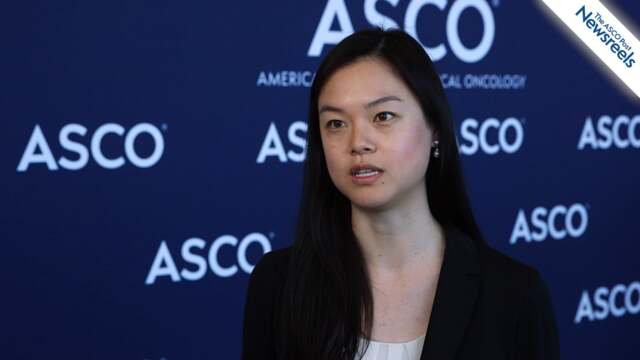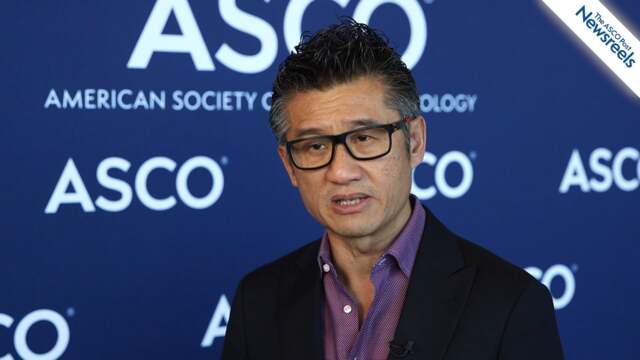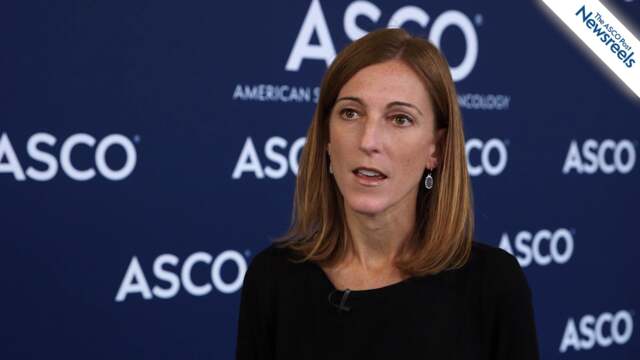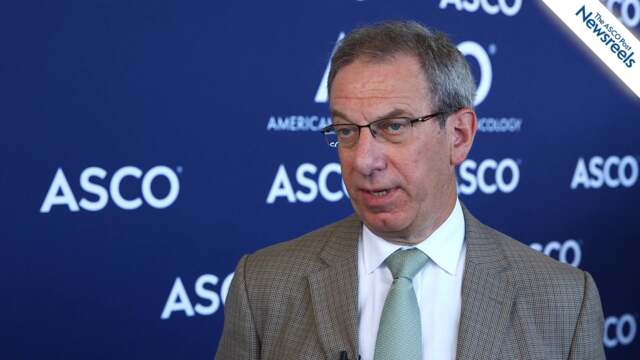Sumanta K. Pal, MD, and Neeraj Agarwal, MD, on Prostate Cancer: The Talapro-2 Trial
2018 ASCO Annual Meeting
Sumanta K. Pal, MD, of the City of Hope, and Neeraj Agarwal, MD, of the Huntsman Cancer Institute, University of Utah, discuss the ongoing phase III Talapro-2 study of talazoparib with background enzalutamide in metastatic castration-resistant prostate cancer with DNA damage–repair deficiencies (Abstract TPS5091).
Sherry Shen, MD, of Columbia University Medical Center, discusses findings on the use of omega-3 fatty acid for obese breast cancer patients with aromatase inhibitor–related arthralgia (Abstract 10000).
Tony Mok, MD, of the Chinese University of Hong Kong, discusses study findings on dacomitinib vs gefitinib for first-line treatment of advanced non–small cell lung cancer, a final overall survival analysis.
Pirkko-Liisa Irmeli Kellokumpu-Lehtinen, MD, PhD, of Tampere University Hospital, discusses phase III findings on adjuvant docetaxel and surveillance after radical radiotherapy for intermediate- and high-risk prostate cancer (Abstract 5000).
Courtney Denton Dinardo, MD, of The University of Texas MD Anderson Cancer Center, discusses findings on the durable response with venetoclax in combination with decitabine or azacitidine in elderly patients with acute myeloid leukemia (Abstract 7010).
Peter Hillmen, MB, ChB, of St James’s University Hospital, discusses phase III study findings on minimal residual disease negativity with venetoclax plus rituximab in relapsed or refractory chronic lymphocytic leukemia (Abstract 7508).





